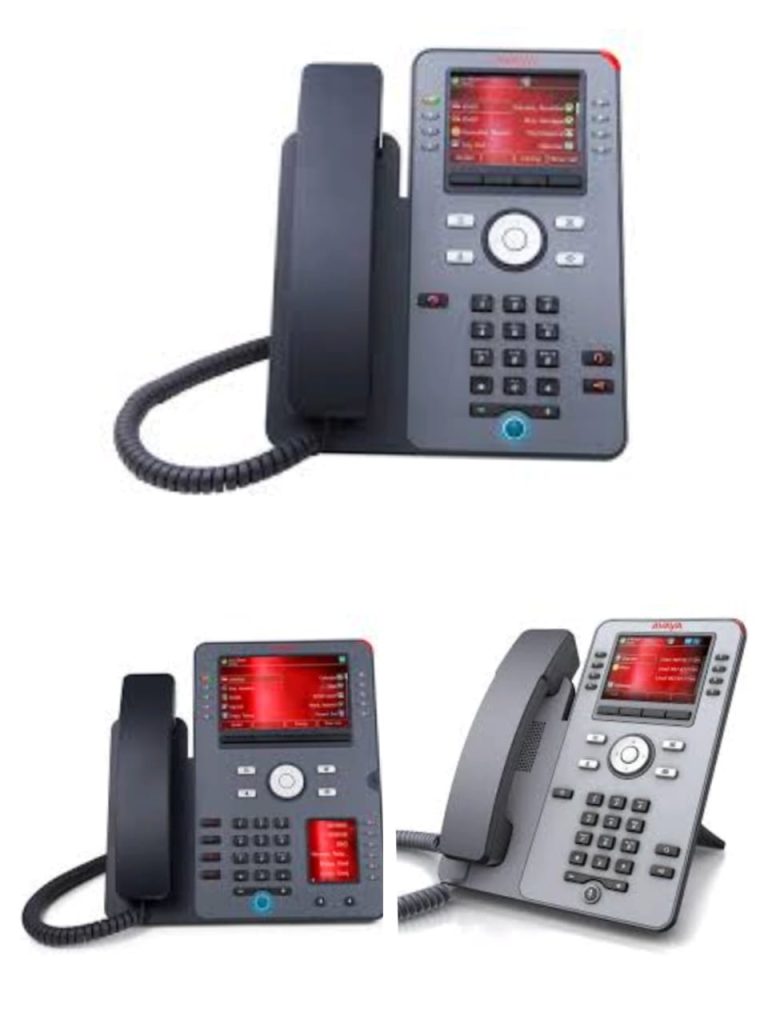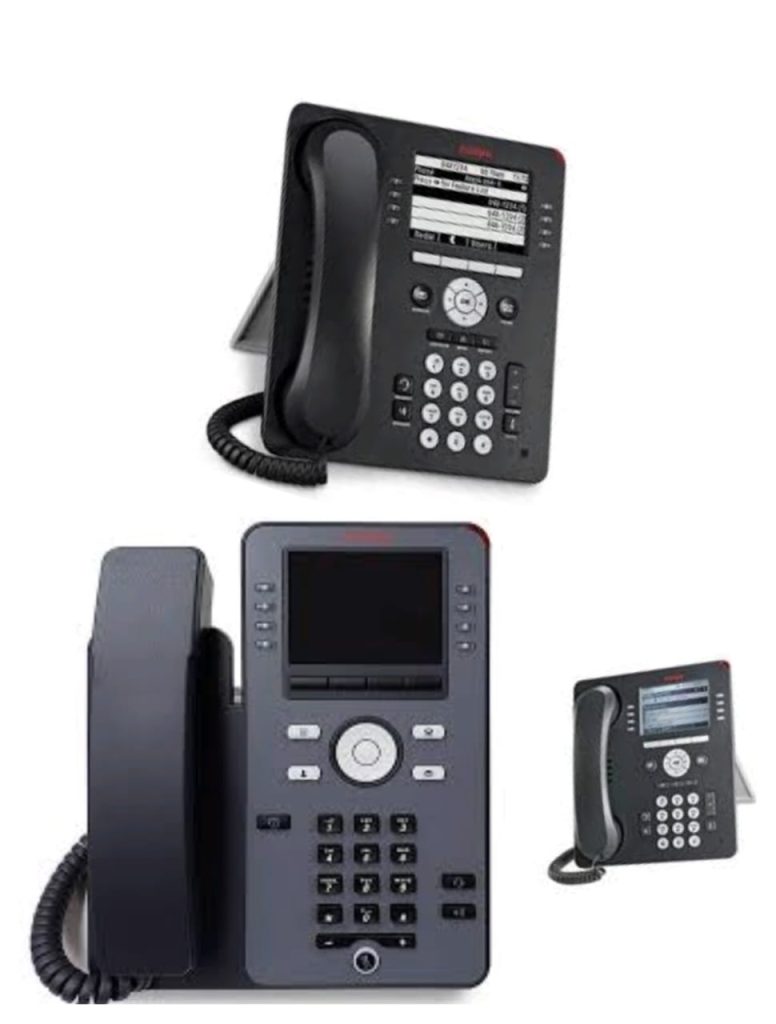Introduction to Avaya IP Phones in Dubai
Avaya is a globally recognized brand in telecommunications, known for its reliable and feature-rich IP phones. Avaya IP phones cater to businesses of all sizes, offering seamless communication solutions that help enhance productivity, collaboration, and customer service. In this guide, we’ll explore all of Avaya’s IP phone models, their features, and answer some frequently asked questions.
Why Choose Avaya IP Phones?
Avaya IP phones are designed for scalability, ease of use, and advanced functionalities, making them ideal for businesses in diverse industries. Their solutions include state-of-the-art IP phones that support VoIP, providing clear audio quality, advanced security, and versatile configurations.
- High-Quality Audio: Avaya phones offer crystal-clear audio with noise cancellation and HD voice quality.
- Scalability: Avaya systems can grow with your business, supporting a wide range of devices.
- Security: Avaya ensures secure communication through encryption and network security measures.
- User-Friendly Interface: These phones feature intuitive interfaces that reduce learning curves.
- Customization and Integration: Avaya systems integrate with popular software and allow for easy customization.
Types of Avaya IP Phones
Avaya’s IP phones are categorized based on their functionalities, target audiences, and usage scenarios. They include:
- Basic IP Phones: Designed for standard office users who require core features.
- Advanced IP Phones: For professionals who need more features, including call transfer, conferencing, and integration with CRM systems.
- Executive IP Phones: These phones offer high-end functionality for executives and power users.
- Wireless IP Phones: Allow mobility within the office, perfect for retail, healthcare, and hospitality.
Detailed Avaya IP Phone Models
Here is an extensive list of Avaya’s IP phone models, their features, and use cases:
Avaya J100 Series
The J100 series offers modern IP phone features with easy deployment options. It includes models suitable for small businesses and large enterprises.
- Avaya J129 IP Phone: Entry-level phone with essential features.
Best for: General office staff.
Key features: HD audio, 2.8-inch display, PoE support, SIP protocol.
- Avaya J139 IP Phone: Mid-level phone with advanced capabilities.
Best for: Call center agents and standard office workers.
Key features: Color display, 4-line call appearances, Bluetooth support.
- Avaya J169 IP Phone: Ideal for users who need a broader range of communication tools.
Best for: Professionals needing extensive call handling features.
Key features: Wideband audio, Bluetooth headset support, dual Ethernet ports.
- Avaya J179 IP Phone: Executive-level phone with premium functionality.
Best for: Managers and executives.
Key features: Large color display, Bluetooth and Wi-Fi, dual USB ports.
Avaya B100 Series
The B100 series includes conference phones designed to make meetings more productive.
- Avaya B109 Conference Phone: Portable solution for small meeting rooms.
Key features: USB and Bluetooth connectivity, omnidirectional audio.
- Avaya B149 Conference Phone: Suitable for mid-sized rooms.
Key features: HD voice, phonebook, multi-party calls.
Avaya 9600 Series
Avaya’s 9600 series phones are known for robust design, high quality, and advanced capabilities.
- Avaya 9608G IP Deskphone: Offers basic functionality with enhanced audio quality.
Key features: 8-line display, PoE, Gigabit support.
- Avaya 9641GS IP Deskphone: High-end model with touchscreen display.
Best for: Executives and power users.
Key features: Color touch screen, wideband audio, advanced call handling.
Benefits of Avaya IP Phones
Improved Communication: Features like HD audio and noise cancellation enhance communication.
Reduced Costs: VoIP-based communication reduces telecommunication expenses.
Flexibility: Wireless models and integration with mobile apps offer flexible usage.
Ease of Management: User-friendly interfaces and easy-to-deploy systems make management simple.
Setting Up and Configuring Avaya IP Phones
Avaya IP phones are easy to set up with plug-and-play functionality, especially with Avaya Aura or IP Office platforms. Here’s a basic guide on setting them up:
- Connect the Phone: Plug the phone into the network using Ethernet cables. Many models also support Wi-Fi.
- Configure the Network Settings: Access the phone’s menu to set up network configurations such as IP address, DNS, and server settings.
- Link to VoIP Provider: Connect the phone with a VoIP provider account or the company’s SIP server.
- Personalize Settings: Customize the phone’s settings for ringtone, contacts, and call forwarding as needed.
Frequently Asked Questions (FAQ) on Avaya IP Phones
Q1: What is the difference between Avaya J139 and J179 models?
A1: The J179 has a larger color display, Wi-Fi, Bluetooth, and USB ports, making it ideal for executives, whereas the J139 is suited for standard office use with fewer advanced features.
Q2: Are Avaya IP phones compatible with third-party systems?
A2: Yes, Avaya IP phones use SIP protocols, allowing compatibility with most third-party VoIP systems.
Q3: How can I update the firmware on my Avaya IP phone?
A3: Firmware updates can be done via the phone’s settings menu or remotely through the Avaya Aura system.
Q4: Do Avaya IP phones support video calls?
A4: Select Avaya models, particularly in the higher-end J100 series, support video call features when connected to compatible systems
For more detailed technical specifications, visit the official Avaya IP Phone product page.www.avaya.com

